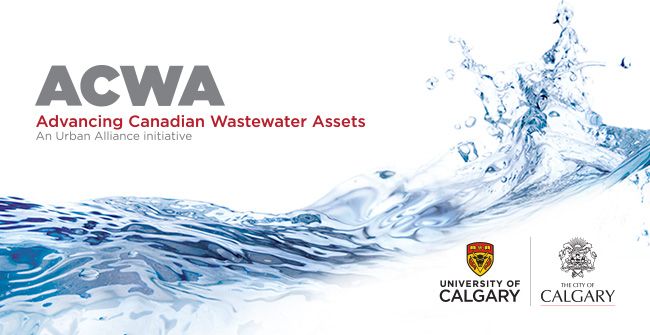When Brainpower Meets Municipal Waste Water
Published on by Water Network Research, Official research team of The Water Network in Business
Advancing Canadian Wastewater Assets (ACWA) is an Urban Alliance initiative that aligns the disciplines of science and engineering with waste-water operators and industry.
ACWA is the only fully integrated, fully contained university research facility located within an operating industrial waste-water treatment plant in the world. Researchers work side-by-side with municipal operators to improve waste-water treatment technologies.

The $38.6-million project, funded by the Government of Canada through the Canada Foundation for Innovation, the province of Alberta and the City of Calgary through contributions of funds and land, puts ACWA in the position to help drive new fundamental research. Industry partnerships are also critical elements that help ensure the sustainability of ACWA operations.
In 2014, Alberta pharmacies collected more than 71 tonnes of expired and unused medications for disposal. That's the equivalent of 36 minivans worth of pharmaceuticals that were diverted from our rivers, streams and landfills – in just one year.
Knowing that many more tonnes of "dead drugs" are flushed down the toilet or thrown into the garbage each year, researchers at the University of Calgary are looking at how to keep these harmful substances out of the water supply. Unsafe disposal of prescription drugs that end up in our waterways and landfills pose risk to our environment.
City of Calgary laboratory scientists and University of Calgary researchers are currently working together to develop new methods. Through strategic partnerships with the Urban Alliance, Water Research Foundation, Water Environment Research Foundation, Canadian Water Network and ACWA, the city will address issues that may affect our citizens, customers and operations to ensure safe and sustainable water quality and quantity for our citizens.
At a time when the federal government is turning on the taps to billions of dollars in infrastructure funding, collaboration between cities, industry and research-intensive universities is more important than ever to help solve these and other urban problems. In some Canadian cities, crumbling waste-water infrastructure has prompted dumps of raw sewage into rivers and oceans.
Although Canada is awash in fresh water compared with the rest of the world, emerging pollutants and the potential for waste water to spread disease are concerns with no boundaries. More than 80 per cent of waste water worldwide is not collected or treated and the main cause of the pollution is urban settlements.
While ACWA research has a wide scope, specific targets include the role waste water plays in disease outbreaks, the survival and adaptation of bacterial strains that can pose risks to public health and the use of biotechnologies to degrade or neutralize contaminants. If some bacterial strains aren't treated properly, they can find themselves recirculated into the system and pose serious health threats.
There have been more than 100 research initiatives and projects launched through the Urban Alliance. Projects continue to span a wide range of research, touching on urban design and its effects on human health, traffic, public transit, social services for immigrants and energy efficiency, among other concerns shared by large cities around the world.
We have learned that as a university and a city, we are stronger working together – and we believe our shared experiences can inspire other cities and universities to do the same. As we work together – and lead organizations that work together – we continue to help prepare our communities for the world of today and tomorrow.
Source: The Globe and Mail
Media
Taxonomy
- Reclaimed Wastewater
- Waste Water Treatments
- Wastewater Treatment
- Research
- Civil Engineering
- Hydraulic Engineering
- Waste Water Treatment